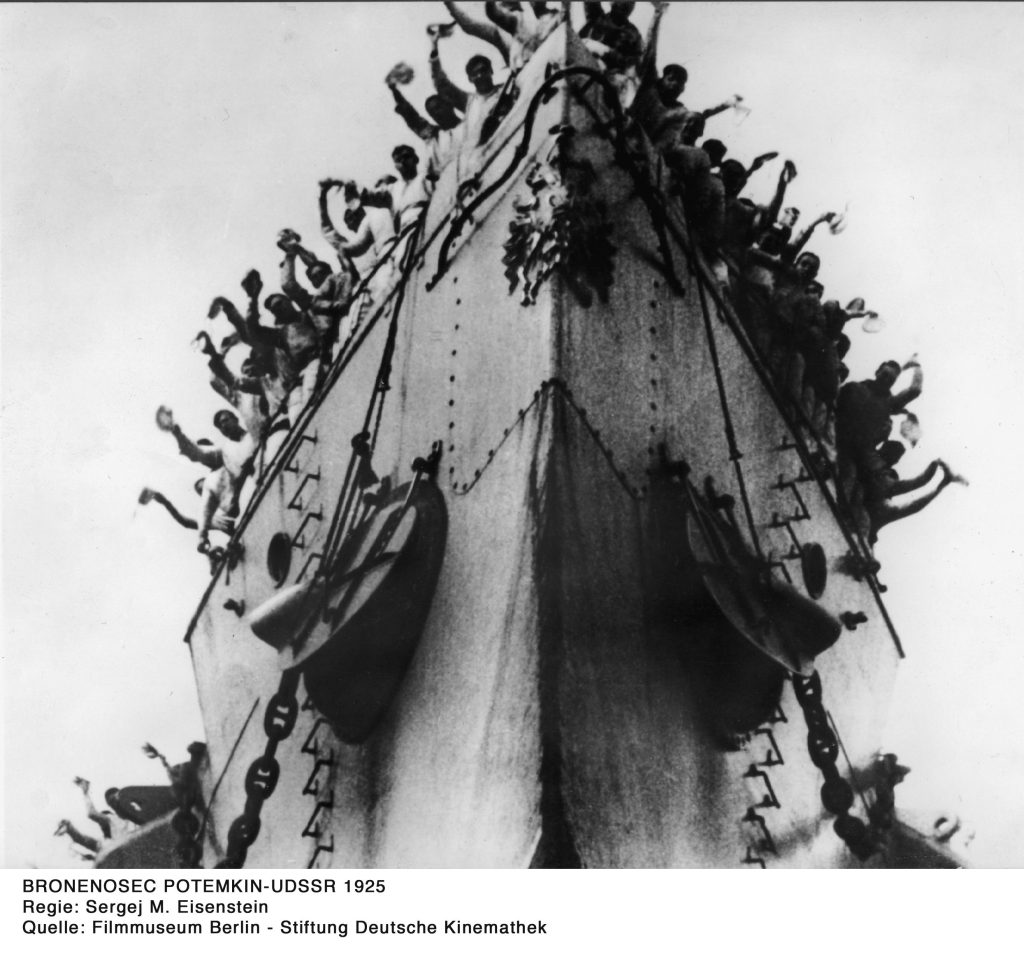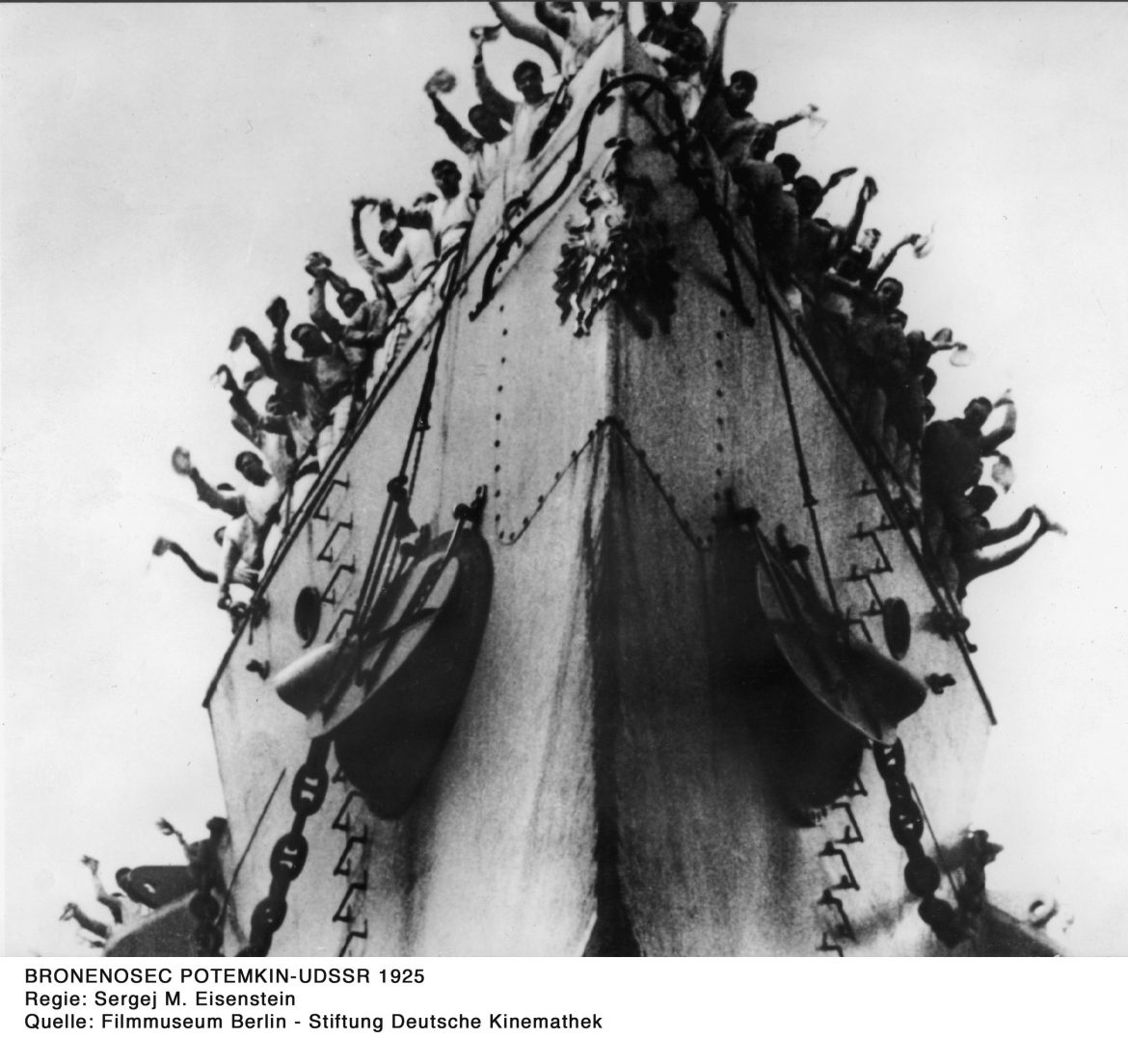• The Las Palmas de Gran Canaria International Film Festival recovers two masterpieces in the 100th anniversary of their premieres
• True to this section’s philosophy, they will be screened accompanied by live music performed by Sergio Alonso as well as the IBF Ensemble with the Ornati Quartet and Noemí Salomón, respectively

Las Palmas de Gran Canaria, Wednesday. April 16, 2025.- Camera Obscura, the section that delves into the history of silent cinema and film music, has recovered Rupert Julian’s The Phantom of the Opera (USA, 1925, 89 min.) and Sergei Eisenstein’s Battleship Potemkin (Soviet Union, 2025, 68 min.) for the 24th edition of the Las Palmas de Gran Canaria International Film Festival, which will take place from April 25 to May 4. Sergio Alonso will bring Gustav Hinrichs’ music back to life, whereas the IBF Ensemble, conducted by Humberto Armas and performed by the Ornati Quartet and Noemí Salomón, will play a musical adaptation of Dmitri Shostakovich’s score.
Camera Obscura, created five years ago by the Film Festival in order to screen silent film classics accompanied by live music, intends to explore the modes of interaction between music and image, from the most conventional to the most experimental. It is a project in “experimental film history” as well as “a creative challenge for musicians who are entrusted with dealing conceptually with the music for a film,” according to the director of the Festival, Luis Miranda. He also recalls in this edition’s catalog that, although films were “silent” for their first three decades of development, they were very rarely without sound in public.
“From (almost) the beginning they were accompanied by music. Before anyone dared to suppose that cinema had any future as art, music was already alongside the images, though outside them. It helped to compensate for their disturbing silence: a soundless, voiceless world was as phantasmagoric as if it had been submerged in water. But above all, music performed the same function as in theatrical melodramas: it helped to channel—or even to vary—the energy and the meaning of what the images were showing,” Miranda claims when he goes back to the origins of the seventh art.
Because it was in the late 1920s when recorded sound, synchronized with the film strip itself, began to be implemented. Precisely from that decade come the two titles the programming team of the Festival has selected for this section, which will be screened at Cine Yelmo Las Arenas on April 30 and May 1 at 8 p.m.
This year, Camera Obscura is paying tribute to the centenary of one of the greatest horror film masterpieces of all time: The Phantom of the Opera. This major work of art not only consolidated the foundations of the emerging horror genre, but also determined visual and narrative paradigms that still resonate today.
Directed by Amerinan film producer Rupert Julian, it is an adaptation of Gastón Leroux’s novel of the same name starring Lon Chaney in the role of a mysterious and disfigured ‘phantom’ who lives in the catacombs of the Paris Opera House causing murder and mayhem in an attempt to make the woman he loves a star.
This film that combines mystery, romanticism and horror will be accompanied by German-American composer Gustav Hinrichs’s score, reinterpreted and arranged by Canarian pianist Sergio Alonso. As an interesting aside, according to what Víctor J. Rosales says in the catalog, the score was not ready for the opening night of the film. He also points out that “what truly makes The Phantom of the Opera immortal is its persistent ability to shape our collective imaginary, whispering in the shadows of contemporary cinema . . . and inviting us to descend into the catacombs of our own mind, where the monsters living inside us are patiently awaiting their moment to see the light of day.”
In its 5th year, Camera Obscura will also feature Soviet filmmaker Sergei Eisenstein’s masterpiece Battleship Potemkin, which is considered one of the best films in cinema history. It’s already been a century since the release of this story that chronicles the rebellion of Russian sailors aboard the battleship Potemkin during the 1905 Russian Revolution.
The audience attending the screening will be able to see on the big screen its iconic Odessa steps sequence while it engages in a sort of dialogue with the IBF Ensemble’s music. Humberto Armas has arranged composer Dmitri Shostakovich’s score, which will be performed by the Ornati Quartet, made up of Sergio Marrero, Adrián Marrero, Adriana Llieva and Carlos Rivero, as well as Noemí Salomón.
Share this Post

